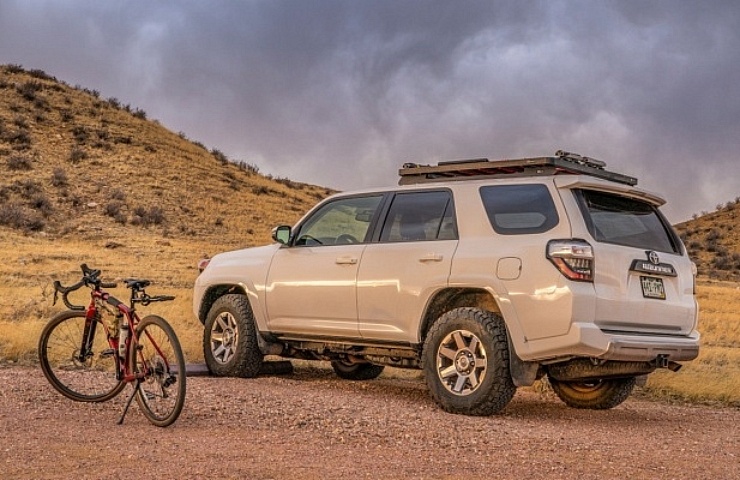Since there are huge differences between these two tire categories, assess your needs and options when choosing between all-season and all-terrain tires.
Shop now for tiresTire Characteristics
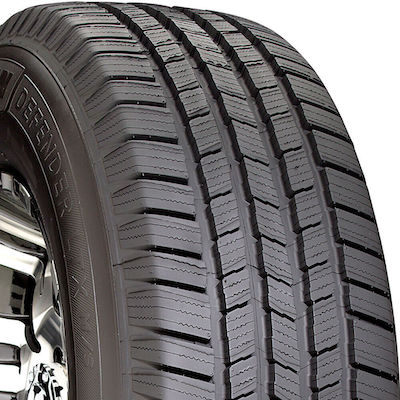
Michelin Defender LTX M/S all-season tire
All-season tires are designed to offer a comfortable ride and traction in all weather conditions. They can handle rain, summer heat, and snow. Since they are all-in-one tires, some compromises are made, but they provide a smooth highway ride and reliable traction when road conditions require it.
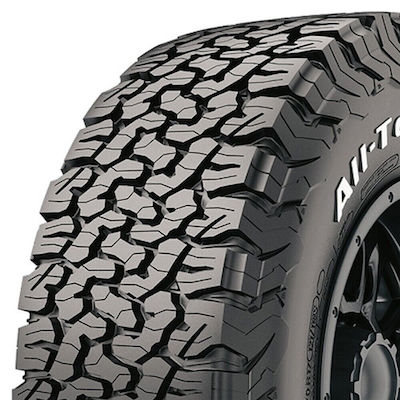
BF Goodrich KO2 A/T tire
All-terrain (A/T) tires have a severe, aggressive tread pattern. The rugged appearance is bolstered by large openings in the tread, providing superior traction in sand and mud. The sidewalls are reinforced to offer puncture protection for off-roading.
The trade-off is a harsh, noisy ride at highway speeds. A/T tires typically have higher rolling resistance, resulting in lower gas mileage.
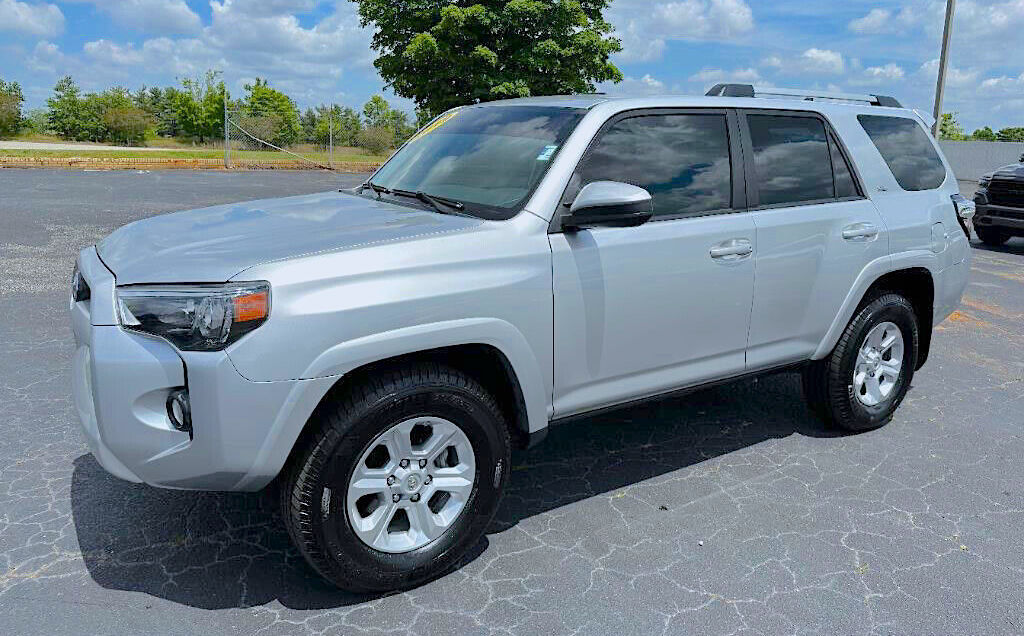
2019 Toyota 4Runner SR5 on Michelin Defender LTX all-season tires
There are no official industry or government standards for these labels. A tire manufacturer can call any tire what they want.
What Type of Tire Do You Need?
When debating which type of tires you should purchase, the first consideration should be the road conditions you face daily. All-season tires could suit your needs if you mainly drive on paved roads and regularly maintained dirt paths.
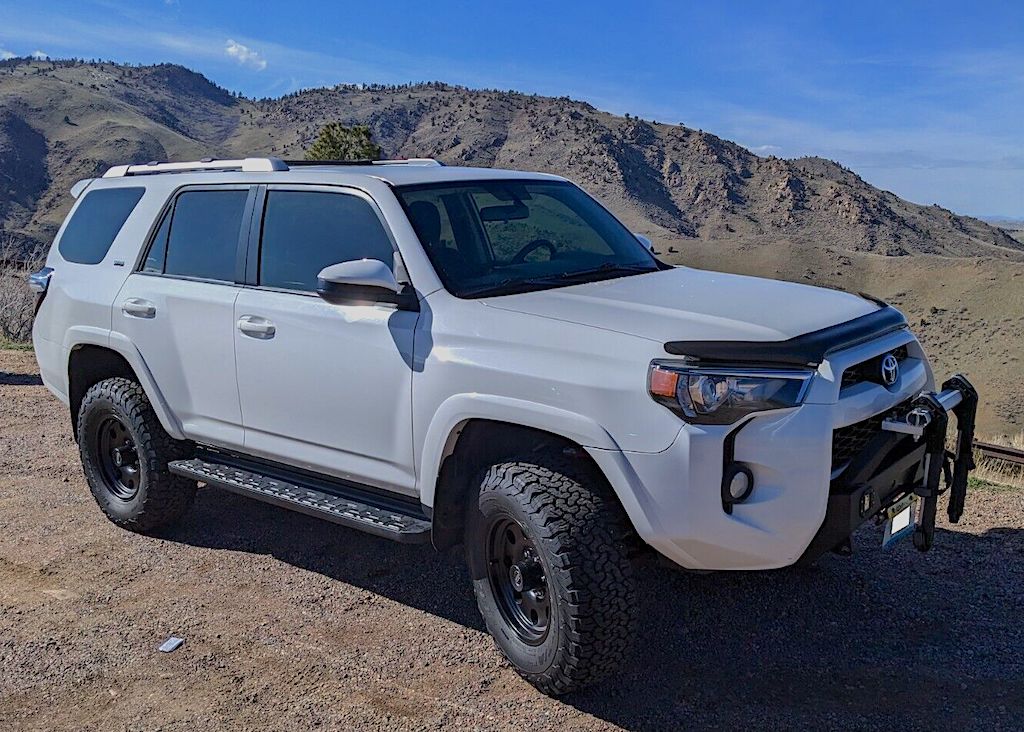
2017 Toyota 4Runner SR5 on 33-inch BFGoodrich KO2 A/Ts
If you take your vehicle off-road on rugged, unimproved forest trails or in soft sand and mud bogs, the all-terrain tire is more suitable. Do you frequently drive on snow-covered paths that never see a snow plow? Then the all-terrain tire is a likely choice.
Cost might also be a consideration. For comparable-sized tires with similar specifications, an all-terrain tire might cost $100 to $150 more than an all-season tire. So expect to pay $400 to $600 more for a full set of tires.
There is no getting around the fact that the tread design of an all-terrain tire can result in a noisy ride. You probably have heard the loud rumble of a 4X4 driving past you. With a set of all-terrain tires on your ride, expect to hear that noise constantly.
Many all-terrain tires have stiffer sidewalls. Combine that with a tougher tread design with less give, and you end up with a stiffer and harsher ride than with all-season tires. All-season tires are designed to offer a comfortable, quiet ride in all weather conditions. The all-terrain tire sacrifices those qualities for superior traction.
Shop now for tires
